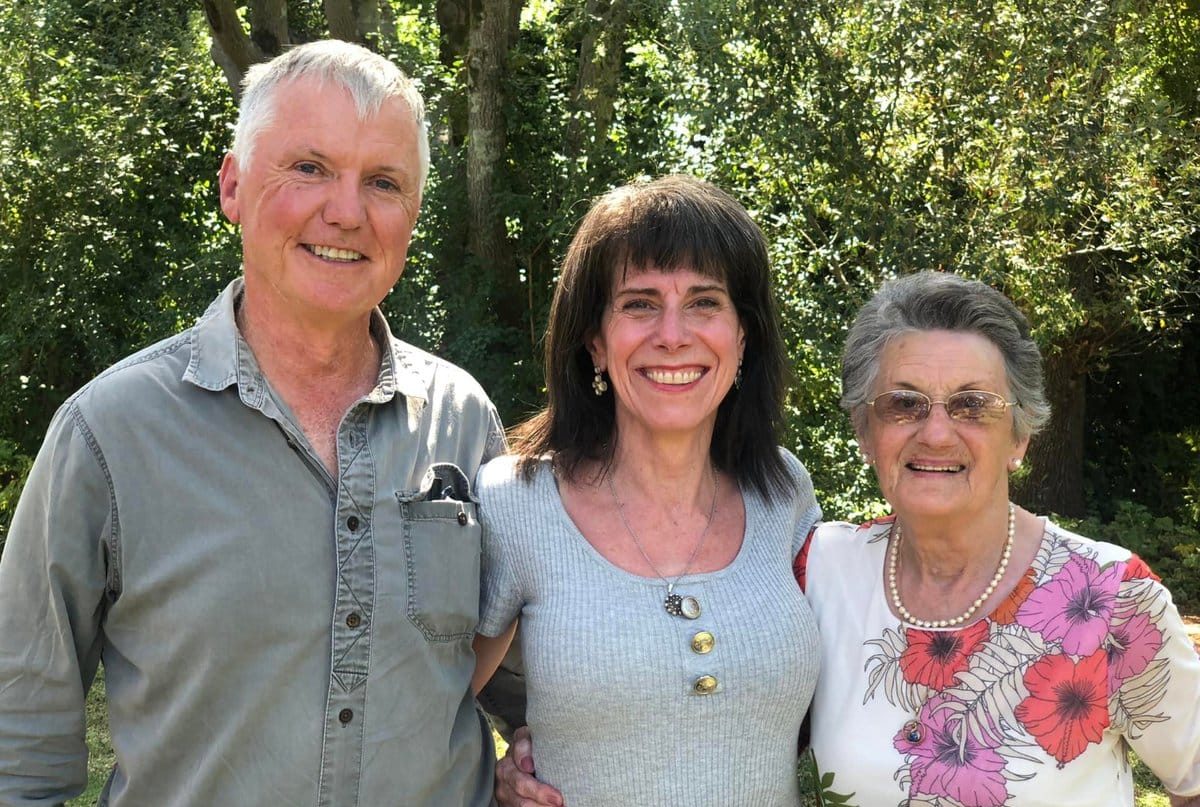The Dementia and Alzheimer’s Association of South Africa (Adasa) in Gauteng received a financial boost of R65 000 thanks to the ripple effect of the new Russell Crowe movie, Sleeping Dogs.
Adasa is focused on building networks and raising awareness about Alzheimer’s disease and dementia among communities. The organization operates without government aid and offers free services to Alzheimer’s or dementia patients and their loved ones, either through consultations or training.
The donation of R65 000 eventually sponsored a total of 111 staff members from various Adasa care service providers, who are now trained as Alzheimer’s and dementia carers. The training was offered to staff working in informal housing and government institutions.
The funds also sponsored a total of ten one-to-one family consultations for families who cannot afford the supportive and therapeutic services.
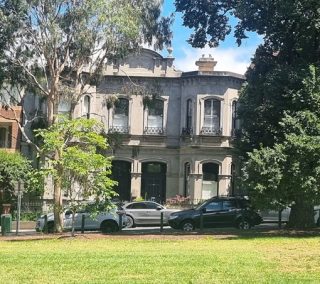
During these consultations, the family or spouse of the patient is involved, and tailored recommendations are then made to support a “person-centred care” approach. In this way, families and spouses are empowered to take better care of their loved ones who are struggling with dementia or Alzheimer’s disease.
This follows after Rejane le Grange and her partner, Rob Nichols, decided to pay the honorarium they received from the filmmakers of Sleeping Dogs received for the use of the front view and front door of their historic home in East Melbourne, Australia, to donate to this organization.
Sleeping Dogs moreover happens to deal with dimension.
Crowe plays a retired homicide detective who is forced to reopen an old case while receiving treatment for Alzheimer’s disease. The movie is based on Romanian author Eugen Chirovici’s best-selling crime novel The Book of Mirrors.
Rejane, who was born in South Africa and has lived in Australia for more than 20 years, told RNews that it was “purely coincidental” that the couple’s home was chosen for this film.
“Literally one day someone came knocking on our door and said they were going to film this international film with Russell Crowe in Melbourne, but it had to look like it was set in Chicago, so the outside of our house would work perfectly for that,” she explains.
“Our house dates back to 1882 and is located in an iconic location near the Melbourne Cricket Club. It’s very close to the city, so there’s a lot of movement in the area, and the house can be easily spotted.”
It was asked if there could be shooting for a day outside this Victorian house in May last year. In the film, the exterior of the house is seen as the residence of the female protagonist, played by Karen Gillian.
“We just thought ‘why not’? They said in the beginning that there might be an honorarium, but did not promise us anything. We weren’t bothered about the money; we did it more for fun.”
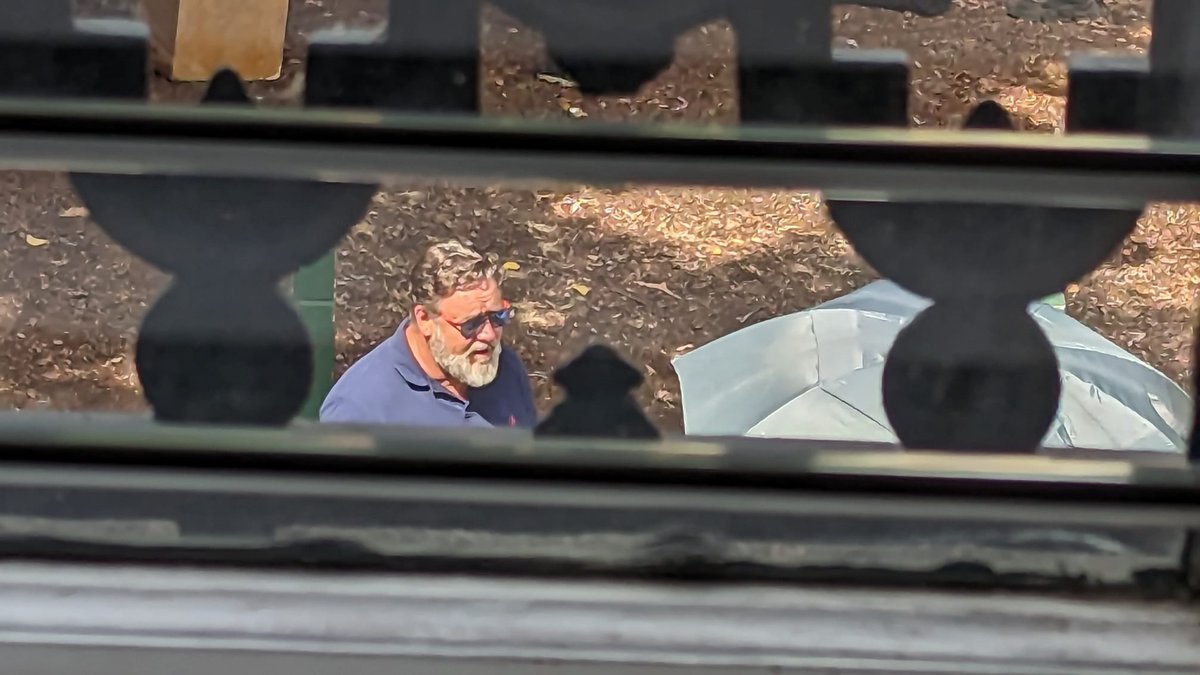
Although the couple did not rub shoulders with Crowe, according to Rejane they were received extremely kindly by the production team and were allowed to walk around the set that day. She jokes that there was indeed a stolen photo of Crowe taken through a window.
“I bumped into Karen (Gillian) when I needed to find something in the house, and she was very nice. There are stand-in actors who are used to test the light and everything, so the main actors are often sidelined, but you can totally understand that. They shoot for long days, and you don’t necessarily want to chat with every Jan Rap and his partner.”
Director Adam Cooper personally came to greet and thank the couple.
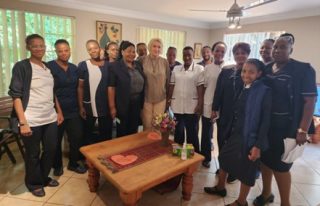
“I remember they had to make it look like it was a cold day in the scene while it was boiling hot in Melbourne. They also said that five minutes of good footage in a movie can take a whole day of filming. It’s incredible how much effort goes into films.”
Thanks to a monetary contribution to the film by the state of Victoria, in which Melbourne is located, an honorarium was later awarded to the couple. It was Rob’s suggestion to donate the money to a good cause in Rejane’s native country.
“On a previous visit to South Africa, we donated money to an orphanage, and I decided to ask a school friend, Marlene Ehmke, to help us find a cause or organization to which this money could go. “
On Marlene’s recommendation, Rejane made contact with Adasa a year ago. Nest Sleeping Dogs As an occupational therapist and the daughter of an Alzheimer’s patient, she has a strong connection with this disease.
Rejane has years of experience in the care and support of seniors and their families, specifically people living with dementia. In 2004, she received an award from the Australian government for her work as an occupational therapist and service manager of The Village in Inglewood, Perth, where she implemented a unique care model for it.
Rob and Rejane went further and motivated other Australians to add generous donations to the honorarium to sponsor more family support sessions for those who would otherwise not be able to afford them.
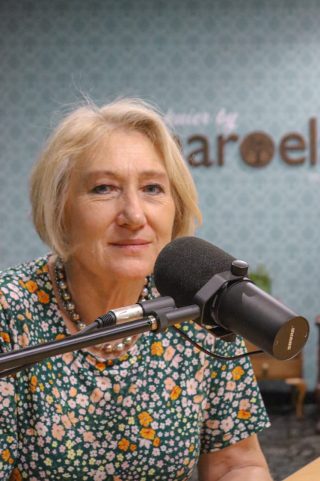
Marinda and Stefan Buys, a South African couple from London, also made a big contribution, according to Rejane.
“We did not want to give this money for research. We felt that more could be achieved by investing in training and making patients’ lives better in this way.
“There is a saying that goes: If you can’t cure, care’, and this is especially true when it comes to this type of disease. I am very happy that we were able to help Adasa. They are very accountable and continuously gave us feedback on how the money was used.”
“Without these contributions by Rejane, the training of carers, health workers and consultations with patients and their families in different communities would not have been possible,” says Welma Geldenhuys, senior social worker at Adasa’s Gauteng branch.
“It made a huge difference in so many people’s lives, and we can’t thank you enough.”
Sleeping Dogs will be shown in local cinemas from Friday 19 April.

